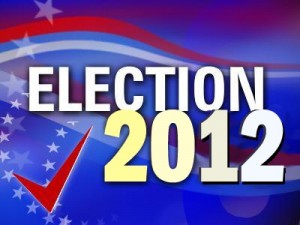 Someone should take a poll asking Americans how they feel about polling. I’m pretty sure our shared distaste for it is one thing about which nearly all of us would agree.
Someone should take a poll asking Americans how they feel about polling. I’m pretty sure our shared distaste for it is one thing about which nearly all of us would agree.
Of all the polling data released in the week leading up to Tuesday’s election, the one that struck me as most revealing came from pollster Scott Rassmussen. Not because it conveyed anything new about voters’ opinions about the candidates, but because it portrayed the seriousness of our political divide.
Mr. Rasmussen asked Americans this crucial question: “Has the upcoming election negatively affected any relationship with a friend or family member?”
Nearly 30 percent of those surveyed said yes.
In fact, based on this poll, almost half of us — 45 percent of Americans — have had heated arguments with loved ones about politics this election season.
Is it any wonder we’re a nation divided when many of us are battling about politics with the people in our own homes?
Mr. Rassmussen also asked about civility. According to the pollster’s website, “Most Americans continue to feel their fellow citizens are becoming ruder and less civilized, and half say they have actually confronted someone over their behavior.
“A new Rasmussen Reports national telephone survey finds that 76 percent of American adults think their fellow Americans are becoming ruder and less civilized. Just 11 percent think Americans are becoming kinder and gentler, but 13 percent are not sure. This is consistent with findings in surveys since September 2009.”
As I write this column, the outcome of this crucial presidential election is still unknown. What is known is that the trend toward incivility and hostility in our public discourse has crept dangerously close to our homes and social circles.
Of course, it was ever thus. From our nation’s founding to the Civil War, from the Vietnam era to the tea party and Occupy movements, loved ones have found themselves on opposite sides of passionate political arguments.
I can name three families off the top of my head with members who don’t speak to each other because they disagree about the candidates they support for president.
Is this a commentary on the pettiness and incivility of individuals and that growing rudeness most of us perceive? Perhaps.
But it also could be a reflection of the seriousness of the issues before us.
Passions are ignited because the political is personal, and if the chasm between Americans is deep, it exists because the competing values and visions of our nation could not be more sharply contrasted.
More government intervention in our lives or less? More freedom or greater “security” in a dangerous world? More religious liberty or a more secular society? More economic opportunity or more “fairness”? More personal responsibility for our lives or more “rights” conferred by our government and funded by public debt?
The economic, political and moral implications of the answers to these questions will shape our nation for generations to come. No wonder we’ve battled so ferociously for so many months.
When the questions before us are as consequential as this, civility is ever more required.
On Tuesday, in honor of our system of free and fair elections, a friend posted this quote from Thomas Jefferson on her Facebook page: “I never considered a difference of opinion in politics, in religion, in philosophy, as cause for withdrawing from a friend.”
Jefferson was a smart guy, but then again, he didn’t have Twitter.
Still, he had a point.
The election is behind us now. It’s time for healing to begin so we can commit to strengthening America for the sake of future generations and the world we lead by virtue of that strength.
Healing requires civility, which begins at home and extends to our communities through the simple, respectful act of remembering we are free, first and foremost, to disagree with one another.



